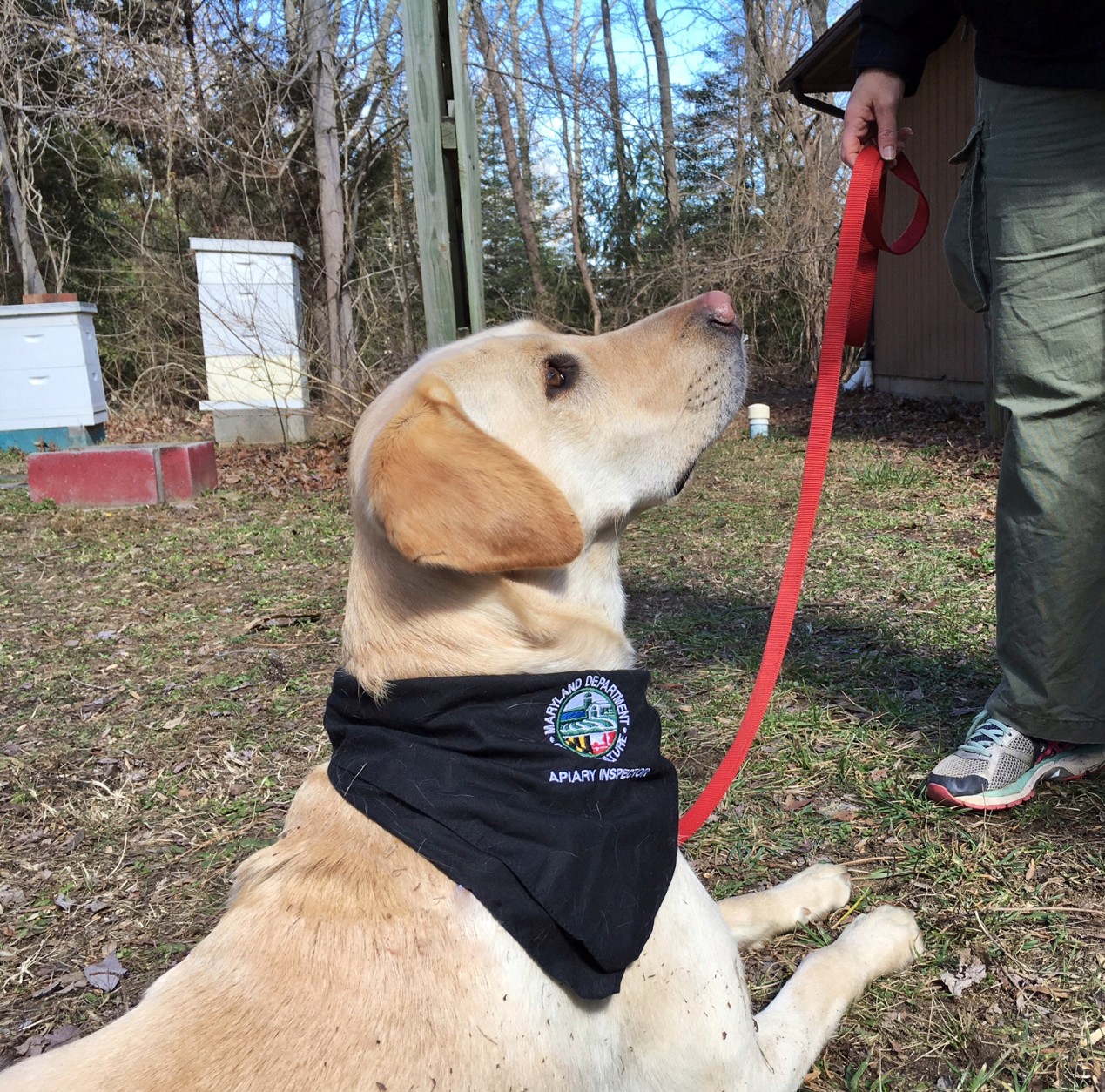
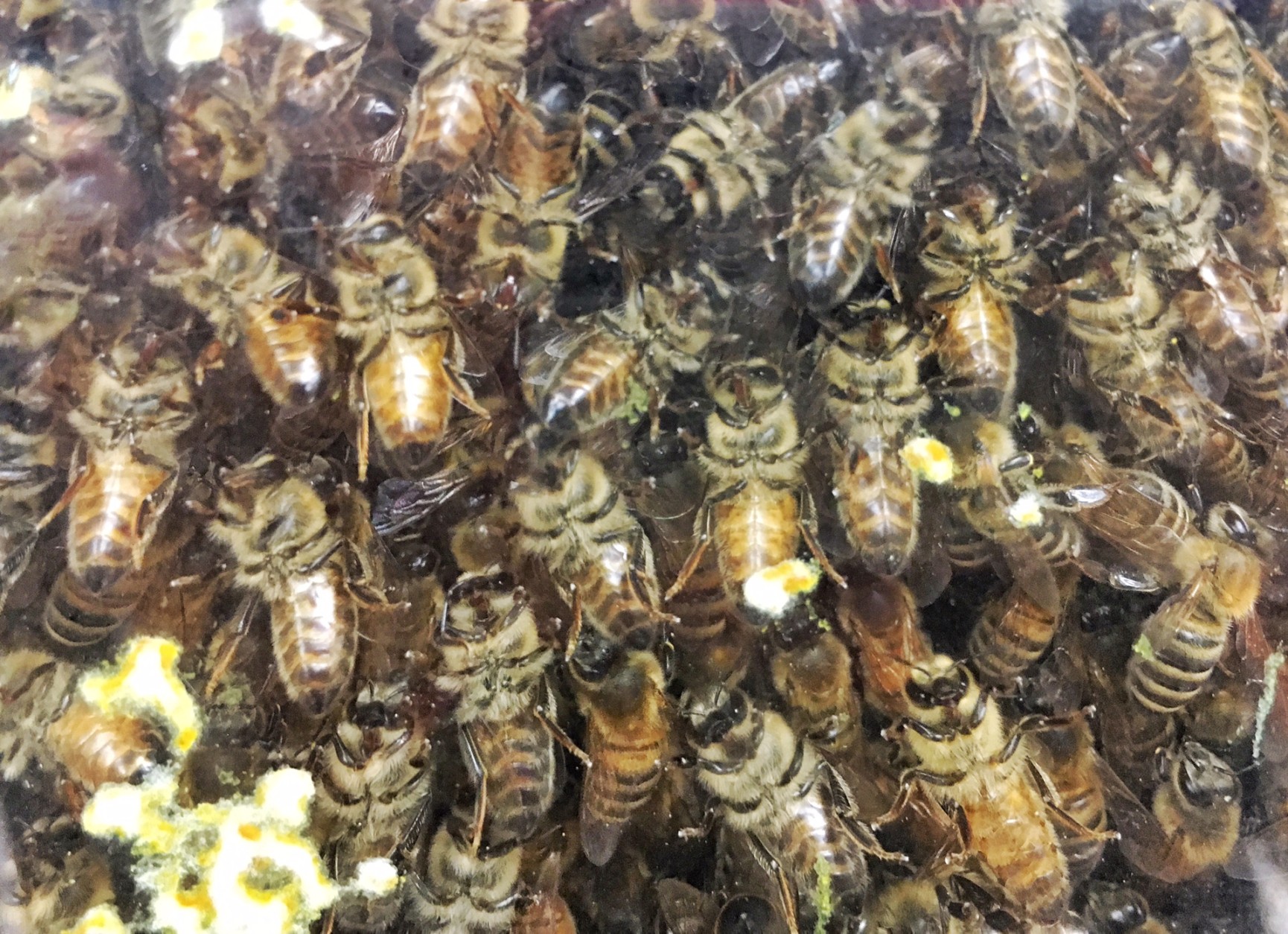
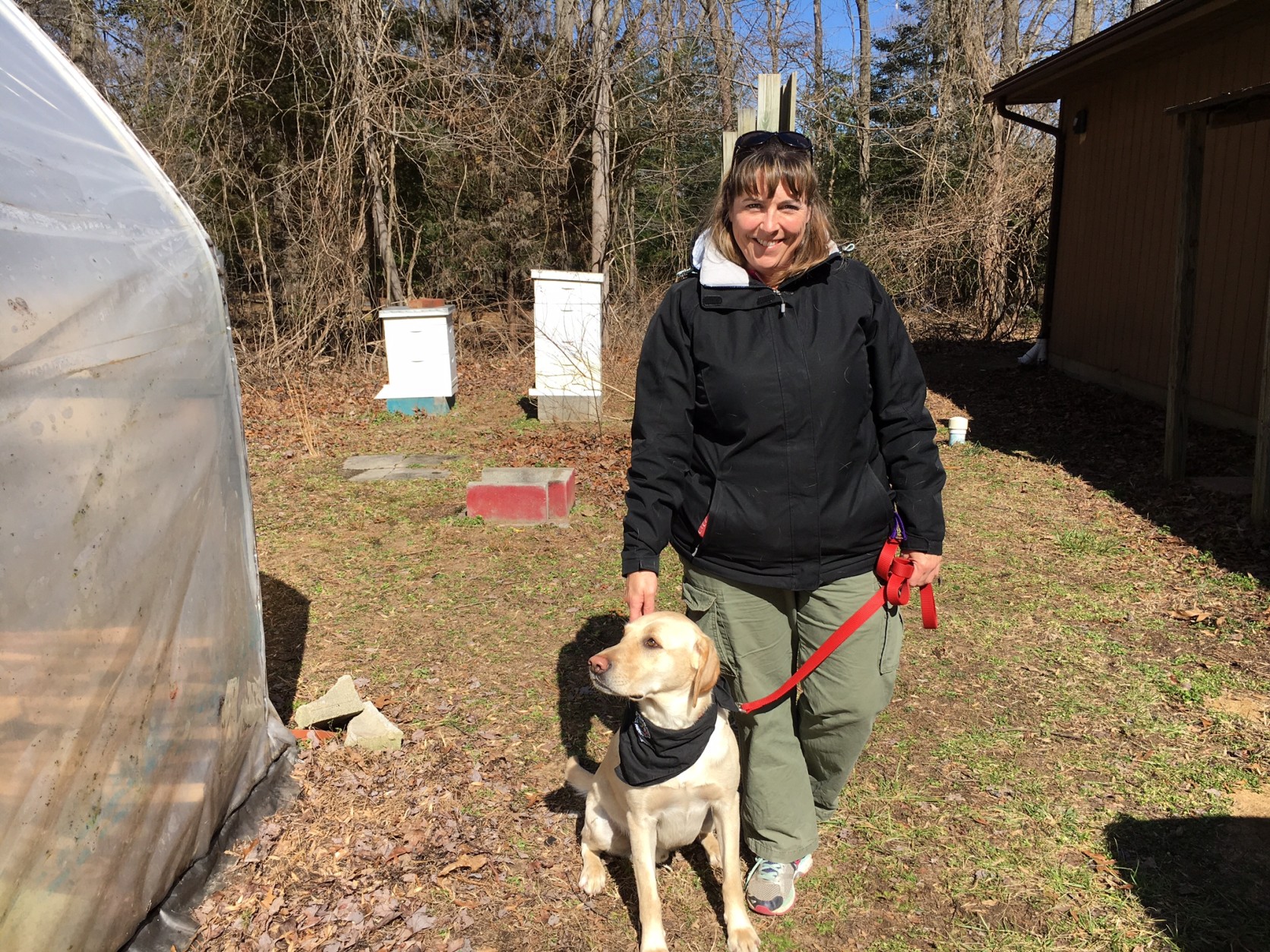
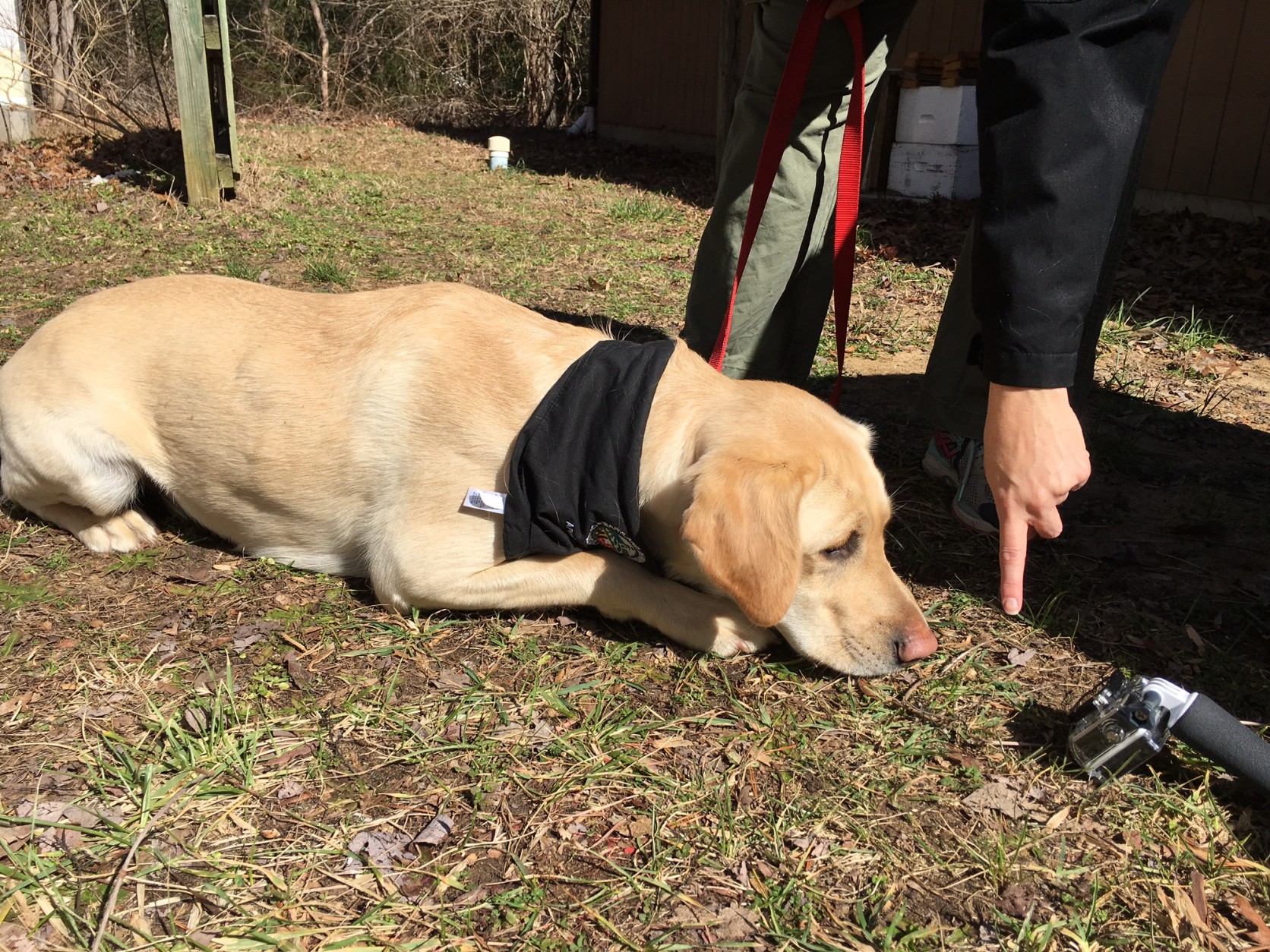
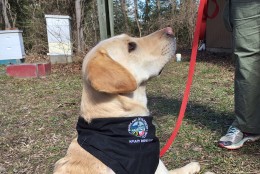
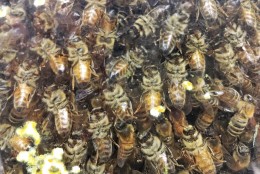
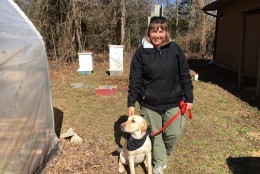
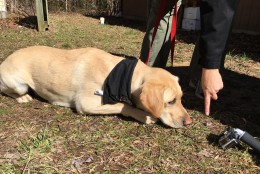
WASHINGTON — Hey, employers, get a load of this guy. He’s fast, efficient and cheap. He has a tendency to slobber and needs an occasional belly rub.
Mac is a dog, as you may have guessed. He works as a beehive inspector for the Maryland State Department of Agriculture, the only canine in the country with such a job.
Mac’s owner and training partner is Cybil Preston, the Maryland Department of Agriculture’s apiarist and a certified master beekeeper. Her job — and Mac’s — is to inspect and certify every beehive in the state.
They respond to calls from beekeepers — professionals and hobbyists alike — who run into problems and worry about something called American foulbrood disease.
“It’s a bacteria that’s fed to the larvae,” Preston says. The bacteria gets into the gut, can kill the affected larvae, and form a spore that can live for decades.
“And that spore can blossom in the hive,” eventually spread to other hives and destroy whole colonies, Preston says.
The spread of the disease can be catastrophic, not just for beekeepers, but for agriculture as a whole. Preston says the role of the honeybee in food production is hard to understate.
“Every third bite of food we take would be thanks to the honeybees,” Preston says. She explains pollinators — like honeybees — keep farmers in business and consumers fed.
“They’re extremely important—we need them,” she says.
American foulbrood is really a stinky disease. “I can detect it [and] humans can detect it in a large quantity once you open the beehive.”
Mac can find the tiniest hint of the bacteria without opening a hive. He can cover far more ground than a human when it comes to the number of hives inspected in a single day.
On Mac’s very first day, “he completed 545 beehives in about three hours,” Preston recalled.
It would take a human about one week to come close to inspecting that many hives.
Mac works in the winter months when the bees are dormant. That sensitive nose of his has to be protected. Mac’s inspections aren’t the end of the detection process; if he finds evidence of American Foulbrood, a sample is shipped to a lab for confirmation.
How accurate is he?
“Well, he hasn’t missed on his training aids,” Preston says. Out in the field, Preston says “we haven’t had any instance of foulbrood found after we went through.”
Mac was a rescue dog. Preston, a dog lover, explains she was told by an associate about a dog that was living in a garage. The family that owned him couldn’t care for him, and didn’t know what to do with the young, energetic animal.
“They called me and when I went out and met him, I couldn’t resist,” Preston says with a laugh. “I had to take him. I saw how cute he was.”
Not only did Mac have a cute face, Preston says, “he really did have a great temperament … he was just a little wild at the time.”
Now, living at home with Preston and her other dogs, Mac’s turned out to be a mellow dog with a good work ethic.
“To be around beehives, we don’t need him to be jumping or barking or disturbing the bees in any way,” Preston says.
Every beekeeper, from professional to hobbyist, must have their hives certified, so eventually she visits every beekeeper in the state.
Having a dog who can work well without being obstreperous is important in that respect because, as she explains, Mac will visit homeowners’ properties.
“We don’t want him to be wild or disrespectful to people’s properties or their animals that are there,” Preston says. “So I think his personality is perfect.”








